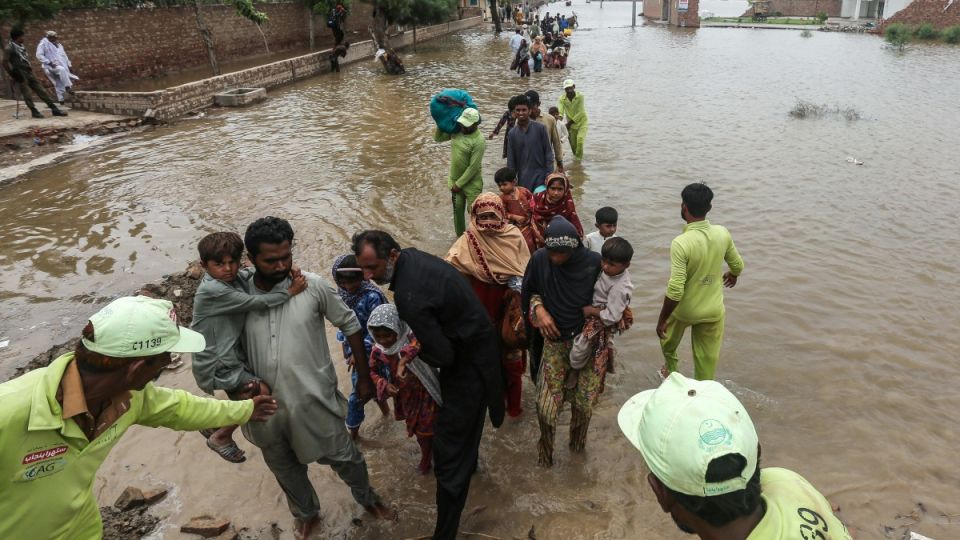October 23, 2025
ISLAMABAD – Pakistan is home to a vast population of over 251 million, according to World Bank figures. In 2023, the population growth rate was reported to have reached around 2.55 per cent. However, almost 45pc of Pakistan’s population lives below the poverty line, according to a World Bank report.
At the same time, Pakistan has been ranked as the most vulnerable country to climate change in 2022, according to the Global Climate Risk Index 2025.
“I have been clear right from the beginning that we have two existential issues because if we don’t tackle them correctly … there are two reasons that could derail us from becoming a $3tr economy and those are climate change and population growth,” said the finance minister in an interview on Geo News show ‘Capital Talk’.
Aurangzeb said the former was no longer merely “an academic discussion” but something “we are living day in and day out”, pointing to the onset of the smog season in Lahore and the recent flood which devastated large tracts of Pakistan.
The finance czar said the frequency and intensity of extreme climate events were increasing, adding that he had participated in three forums during the last week that discussed the matter of climate change.
“There is no way to put a value on the precious human lives we have lost,” he said of the deaths in the recent floods and climate disasters overall, adding that the growth goal for this year was targeted at 4.2pc but “there is no doubt now that at least 0.4-0.5pc will be shaved off.”
He stated that 80pc of the damage caused by the recent floods was sustained in Punjab, predominantly impacting the agriculture sector, especially rice and cotton-producing regions.
Regarding the government measures to mitigate the effects of climate change, the finance minister said Climate Change Minister Musadik Malik was tasked by Prime Minister Shehbaz Sharif to devise a plan for the next 300 days.
MNCs exiting Pakistan
Questioned about the recent high-profile departures of multinational companies from the country, Aurangzeb said there were multiple aspects to the issue.
“These global companies make decisions on their participation regarding which clients to stay with, which products to stay with and in which countries to remain.”
Mentioning his own past example, he pointed to the exit of the Royal Bank of Scotland from Pakistan, adding that the entity had decided at the time to exit all global money markets.
He further said that while some companies were indeed exiting, some entered the market during the past three to four years, pointing to Aramco and others.
There have been a flurry of announcements over the last few years by various multinational corporations either exiting Pakistan or significantly scaling down their operations here. Some of the prominent ones include Procter & Gamble, Shell, Caltex and Eli Lily, among others.
There has also been a significant slowdown in manufacturing activity, where more than half of products tracked by the Pakistan Bureau of Statistics through the Large Scale Manufacturing index have exhibited a median drop in production of 10pc annually, over the last two years.
Stability but no growth due to no reforms: Miftah Ismail
Meanwhile, speaking in an interview on Geo News show ‘Aaj Shahzeb Khanzada Kay Sath’, former finance minister Miftah Ismail said that while stability was indeed achieved, key reforms were needed for growth but they were not carried out and instead the government had not reduced its expenses but raised taxes, thus dampening demand.
He also pointed to the lack of reduction in the share of the provinces in the National Finance Commission award as a reason for lack of growth.
The former finance minister also criticised government sprawl at the federal and provincial levels, saying: “If the government steps back just a little, the private sector will handle it.”
Ismail said there was a lack of incentive for foreign companies to enter the country with his high taxation and utility costs for gas and electricity. He added that the entire energy infrastructure of the country needed a rehaul to move away to more cheaper methods such as solar and wind.


